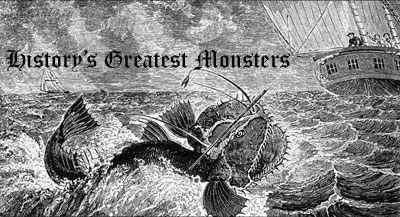Introducing: History’s Greatest Monsters

Halloween came and went at the beginning of this week, and the ghouls that we’ve been conjuring up have all gone back to hibernate for the winter. But still, some monsters continue to linger. In particular, we’ve been roughed up by Lou Reed and Metallica’s Lulu, with its unnecessarily long “songs,” unintentionally hilarious press materials and unstoppable power to drag others down with it, including the otherwise respectable director Darren Aronofsky. Yes, Lulu is one of the most spectacular artistic failures to emerge in quite a while, but the sheer lack of any appeal whatsoever got me thinking about the nature of “bad” music. What makes it bad? Does critical consensus actually render valid judgment on the quality of a piece of music? And why is it that some artistic failures can still be commercial successes, while others are seen as historically epic flops.
Music criticism is a wholly subjective practice. And one of the reasons that we choose not to publish number, letter or star grades alongside our music reviews is that, despite our opinions and preferences, sometimes an album doesn’t lend itself easily to a quick and final judgment, and we’d rather open up a dialogue, and an ongoing one at that, than slap a grade next to a review and move on to the next victim. We do use scoring in other types of articles, like our miniature-sized Reviews in Brief, or our Celebrate the Catalog feature, which examines an entire artist’s body of work. And, most importantly, we’ll readily admit that sometimes our opinions change.
But we do come across music that’s so repellent, we wouldn’t hesitate to give it an F had we actually formatted the reviews as such. Lil Wayne’s Rebirth comes to mind, an album so pointless, tuneless and cynical, that I, for the life of me, don’t accept any justification for its existence other than Wayne’s own vanity. And critics have been reviewing albums that have led to similar reactions over the years, and often with very different results. About 99 percent of all critics absolutely hated Lou Reed’s Metal Machine Music, but Lester Bangs actually celebrated it in all of its noisy excess.
So, with this in mind, we introduce “History’s Greatest Monsters,” a regular, bi-weekly evaluation of albums deemed some of the worst in history. We do this not for the sake of schadenfreude, but to try to understand how these reputations were earned. Certainly, there are bound to be pleasant surprises. And certainly, there will be some truly unpleasant experiences in the months ahead. But we’ll all be better people for it, and hopefully we will have all learned something, and had a good laugh. Periodically, we will publish a Progress Report, to recap just where all of our candidates stand on the hierarchy of bad music, if they do at all.
We also welcome suggestions from our readers for candidates. But we have a few guidelines:
– The album must be a studio album (no live, hits or b-sides compilations).
– The album must be by a professional artist (no demos from your neighbor’s band)
– Any albums that aren’t typically considered failures will be accepted on a case-by-case basis, but we’ll require an explanation before considering it.
– No Nickelback.
So hit us up with your suggestions on Twitter and Facebook, and in the meantime, we’ll be preparing our list of monsters.
Jeff Terich is the founder and editor of Treble. He's been writing about music for 20 years and has been published at American Songwriter, Bandcamp Daily, Reverb, Spin, Stereogum, uDiscoverMusic, VinylMePlease and some others that he's forgetting right now. He's still not tired of it.

